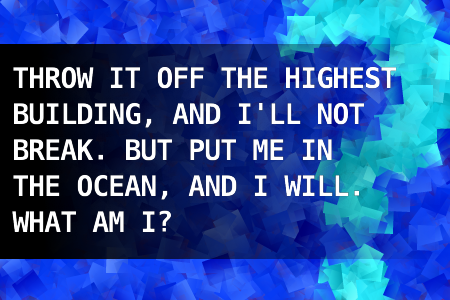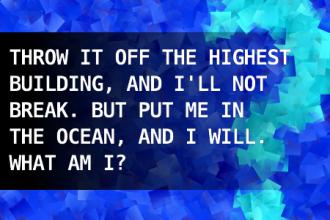Throw it off the highest build...
Brain Teasers
[2218] Throw it off the highest build... - Throw it off the highest building, and I'll not break. But put me in the ocean, and I will. What am I? - #brainteasers #riddles - Correct Answers: 74 - The first user who solved this task is On On Lunarbasil

2016-05-16
